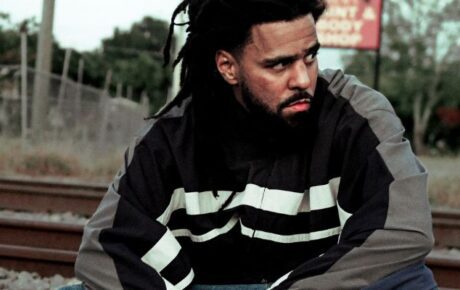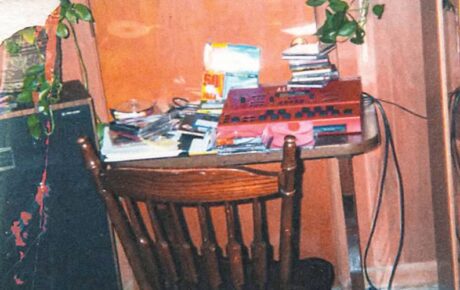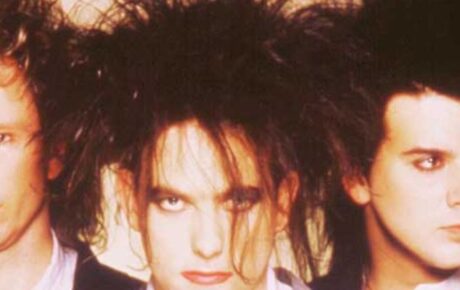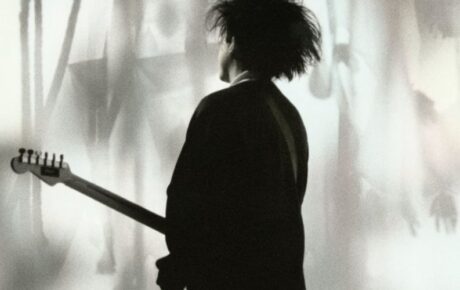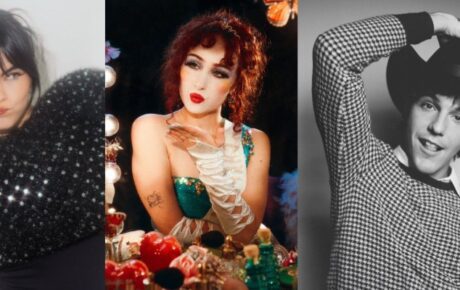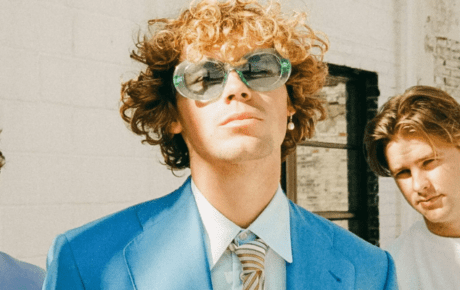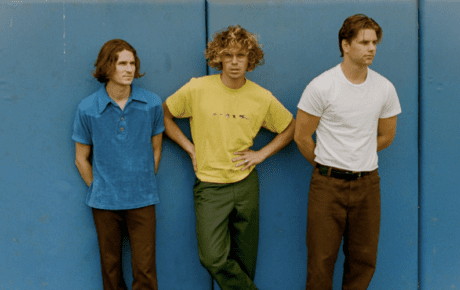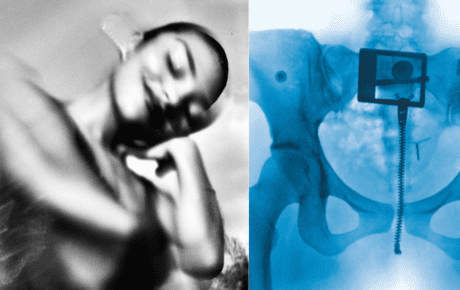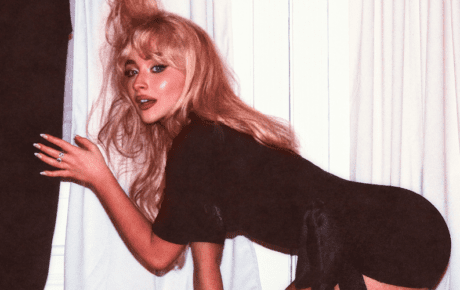The Cure have released their first album in 16 years, and Robert Smith and Co are forever following their darkest muse. Now, at last, they return with Songs of a Lost World, an album clearly uninterested in making up time after its prolonged gestation, and content to move at its own unhurried pace.
The Cure sound deliciously slow, elegantly weary, and definitively grown up on their 14th studio album. Songs of a Lost World feels like a record whose time is right, delivering a concentrated dose of The Cure, and is a full tapestry in comparison to their later albums. It has been almost 50 years since they formed and now the band has returned with what could be considered as one of the finest records they’ve ever released. Songs of a Lost World is wall-to-wall consistently great. Moody, dark, and mature; all without sacrificing their melodic side or feeling even the slightest bit forced. In interviews, lead singer Robert Smith remarked that he had lost some confidence in his abilities to write new material since their last record but felt this newest outing had rejuvenated him. One can only imagine the rush of vindication he must be feeling right about now, knowing that it was all worth the wait. But perhaps the greatest compliment to pay Songs of a Lost World is that it already feels inevitable, a work of wisdom and grace that extends naturally from the moment the Cure took up their instruments in a local church hall all those years ago.
Songs of a Lost World was several years in the making, and is The Cure’s first studio album since 4:13 Dream in 2008. The album was originally intended for release in 2019. It is the band’s first full-length album to feature Reeves Gabrels on guitar, since he joined as a full time member in 2012; and Simon Gallup on bass guitar, who first joined in 1979 and has played through most of the band’s history. Gallup is the second longest-serving member of the band after group leader Smith. Jason Cooper returns on drums. It also features the studio return of keyboardist Roger O’Donnell, who rejoined the band in 2011 after a six-year hiatus. The songs are entirely written, composed, and arranged by Smith. During the writing process, Smith had difficulty finding the right imagery for the lyrics to ‘Alone’, ultimately finding inspiration from the Ernest Dawson poem “Dregs”. Smith also chose Bagatelle, a 1975 sculpture by Slovenain artist Janez Pirnat, to illustrate the sleeve. The album cover was then designed by Andy Vella.
View this post on Instagram
The album’s eight songs bring sharply potent tales of death on ‘I Can Never Say Goodbye’, mortality on the beautiful ‘And Nothing Is Forever’, and the difficulty of being in the present moment found on ‘All I Ever Am’. Smith’s voice is still a remarkable instrument after all these years, and one of his best couplets “And the birds, falling out of our skies/And the words, falling out of our minds,” from ‘Alone’ proves he’s only honed his craft. The last time a Cure album had only eight songs on it, it was Pornography (1982); the last time Robert Smith wrote all the songs on an album front to back, as well as it being an album under an hour long, it was The Head On The Door (1985).
The introduction to ‘Alone’, the opening track of Songs of a Lost World, clocks in at six minutes and three minutes elapse before Smith draws breath to sing. Tracks like the crushing ‘Warsong’, with its pounding drums and resigned, defeated lamentations of violence, should be proof enough that The Cure can still capture and distil that same pessimism they did decades prior. Matching their dreamy goth/alt rock energy and sound perfectly musters the sour hum of organ to deal with an intractable conflict of two people locked in enmity for ever. ‘I Can Never Say Goodbye,’ written in memoriam for Smith’s brother, is both beautiful and heartbreaking. A looming dread that leaves the listener in quiet contemplation. The final two tracks ‘All I Ever Am’ and ‘Endsong’ lend to an air of finality to the album, but also a more literal, existential end. If it wasn’t already clear, death is on The Cure’s minds. Not that they have ever shied away from the subject, but one cannot help but feel the helpless fatigue in Smith’s aching vocals:
“My weary dance with age,
And resignation moves me slow,
Toward a dark and empty stage,
Where I can sing the world I know”
Sure, it might have taken them some time to arrive, but the wait was well and truly worth it. Both of these bookends benefit from the emphatic pummel of Cooper’s drum kit, driving home the message of inexorability. The tracks on Songs of a Lost World were written in response to a spate of losses among Smith’s family and friends pre-pandemic, but encompass the sucker punch of 2020-21 too with lyrics like “birds fall from the sky” nodding to the climate crisis. The most direct track is ‘I Can Never Say Goodbye’, marking the passing of Richard, the music-savvy elder brother looked up to by the young Smith. ‘And Nothing Is Forever’ is laden with piano and strings, the theme deals with his deep regret at having made a promise to be with someone on their deathbed, one he could not keep. Another theme that eats caustically away at many of these songs is the question of Smith’s own selfhood. It seems to be fracturing, even as every music fan has a pretty solid idea of who this monumental figure is. The record’s crowning glory is the poppier upbeat, ‘Drone: Nodrone’, a pacier, snarkier cut about self-doubt prompted by the arrival of a drone above Smith’s garden. In the lyrics, he is initially full of caustic bewilderment; his centre is not holding.
The brilliance of this album’s melancholic beauty is simply down to Smith himself, how he literally sounds. That voice is still that voice, and it sounds like nothing has changed at all, it’s still that feeling of half-sob, half-caress, a yearning that can trip up your heart. In a world of software fixes and AI recreations, the seasoned Cure listener can tell he still has the gift. That voice sets itself into the arrangements but is never buried and it still wants to clearly connect. This album is ultimately about time, distance and endings, underlining that the end is always nearer, sooner than one thinks. The Cure’s earlier contemplations across years and decades of finality, of endings, of fires burned cold and more, are resonant of younger visions of melancholy but this is the work of older men.
It’s not an album that feels like a certain sonic stereotype of age, nor does it have that beautiful sprightliness that characterised so much of their run of pop baubles in the 1980s and 90s. Songs Of A Lost World has a mood, it’s not monochromatic. ‘Alone’ opens with sweeping majesty and space, ‘A Fragile Thing’ has a brisker rising punch, ‘Drone:Nodrone’ is shuddering cyclical intensity, ‘All I Ever Am’ leans the closest to a kind of pop quirk, but only in the most oblique sense. Throughout, both Smith’s and O’Donnell’s keyboards, whether synths or piano or whatever else they choose to employ, have a presence here that seems more distinct than those elements have been in a long time for them, a way to make moments like the steady introduction of a song like ‘And Nothing Is Forever’ seem very not-rock-as-such, yet utterly necessary in context.
Lyrically, while much of the album could be seen through the lens of conventional romantic finality, what absolutely pins down the album is the collective that is The Cure, always reconfiguring time and again around its unquestioned centre, fully inhabits a space knowing, reaching back to an earlier lyric, how the end always is. ‘Drone:Nodrone’ lets Smith find a way to poke wryly at the focus as well as conveying it, bemused self-dialogue in the face of shrunken time. But otherwise, all is fragmentation, loss, and conclusion. The longest song is the concluding ‘Endsong’ at ten minutes plus, driven by an echoed drum stomp from Cooper and a final aim for sonic grandeur in ruin. Smith’s almost offhand delivery of “I’m outside in the dark / Wondering / How I got so old” at one point cuts to the quick – something not just for himself but for those he knows have been listening to him all this time. Yet the slow glowering heart of the album is ‘Warsong’, an apt reminder that The Cure has always been very, very good at anger and vicious emotional extremity. “No way for us / To find a way to peace / We never found before” is as good a way to sum up a collapsed space on an intentionally overlooked false foundation as any, whatever situation any listener wants to apply it to. Sonically, his guitars and Gabrels’ explode around and ride over each other in gnarled roars and scrawls, Gallup once again the person who makes a bass sound like doom.
When listening to Songs Of A Lost World, try to ignore the length of time since the last album. Take away the stifling weight of comparisons as much as possible from everything that’s gone before, even if it can’t ever be truly done. Consider instead something direct: what is Songs Of A Lost World in its own right. Songs of a Lost World is an honest, well-earned return-to-form for a band that themselves had lost their way for a while there. Desolate in its words and dulcet in its tones. One cannot say whether it will be regarded as one of the band’s best; for that, we’ll simply have to wait and see. But the answer’s obvious: they’ve returned with an album that deserves every moment of your attention. All the way to its inevitable, tearful end. As melancholic as Songs Of A Lost World is, it’s not quite like any other album the Cure have done before, and that means something. We all journey towards ends, the past recedes. Yet perhaps, contrary to the opening song, the underlying truth is we’re not entirely alone.

